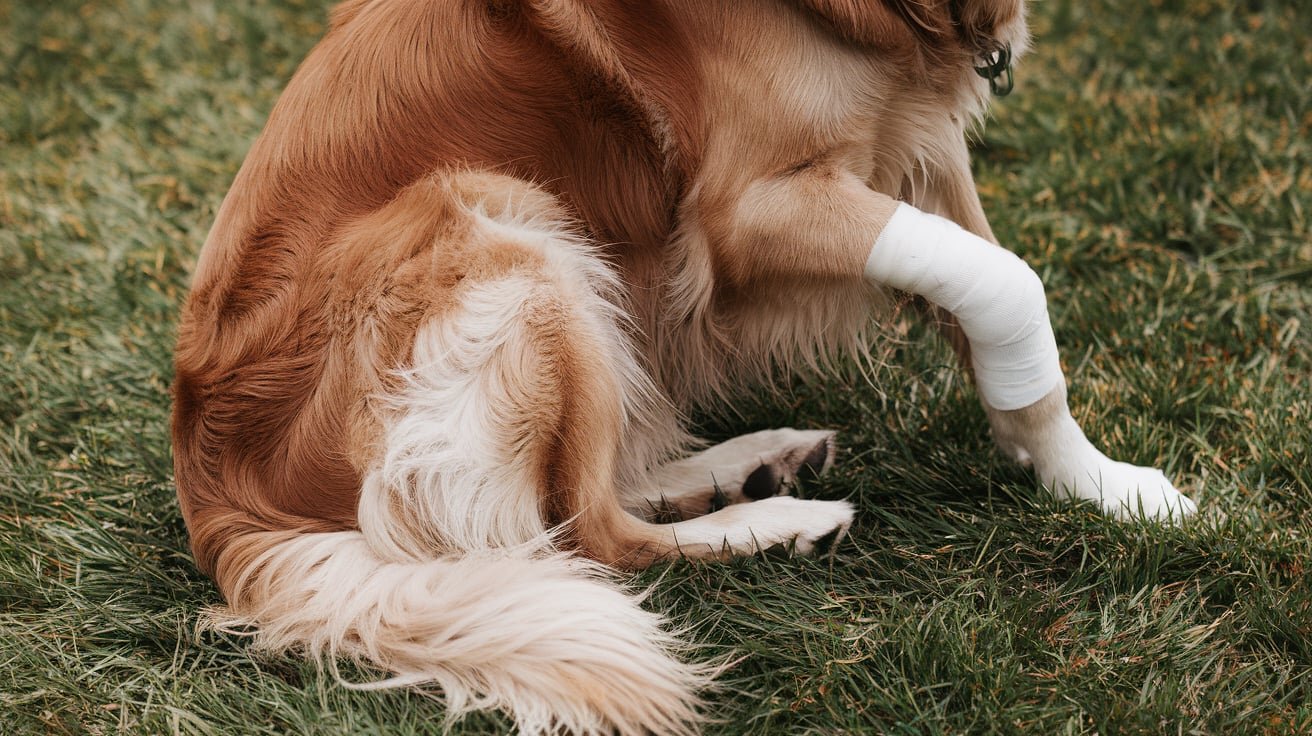introduction To Joint Health For Dogs
Joint health is essential to ensure a happy, active life for our beloved dogs. Just like us, dogs experience wear and tear on their joints, especially as they age or if they are highly active. This article will walk you through everything you need to know about maintaining your dog’s joint health, including practical tips, supplements, and lifestyle adjustments.
For More Informations On Dogs You Can Also Visit Dogs Family
Why Joint Health Matters
Imagine watching your dog struggle to stand or move, and the activities they once loved, like playing fetch or climbing stairs, become challenging. For many dog owners, this can be heartbreaking. Joint health issues are common, particularly in larger or more active breeds. Addressing these problems early can make a world of difference in your dog’s quality of life.
Common Joint Issues in Dogs
- Osteoarthritis: A degenerative condition that breaks down cartilage, often due to aging.
- Hip Dysplasia: A genetic condition where the hip joint doesn’t fit properly.
- Elbow Dysplasia: Common in large breeds, affecting their front limb joints.
- Patellar Luxation: Known as a “floating kneecap,” which can dislocate and cause discomfort.
Many joint issues can be managed, especially if they are detected early.
Symptoms of Joint Problems in Dogs
Wondering if your dog might have joint issues? Here are some signs to watch for:
- Limping or favoring a specific leg
- Stiffness after rest, especially in the morning
- Reluctance to jump, climb stairs, or exercise
- Decreased interest in play or general lethargy
- Whining or signs of discomfort when moving
If you observe any of these signs, it’s a good idea to visit your veterinarian for a thorough evaluation.
Steps to Maintain Your Dog’s Joint Health
1. Maintain a Healthy Weight
Keeping your dog at an ideal weight reduces stress on their joints, especially for breeds prone to joint issues. Extra weight can exacerbate joint deterioration, which is why it’s essential to manage their diet and encourage exercise.
Anecdote: “I remember my Golden Retriever, Max, struggling to climb up the stairs. Our vet suggested a weight management plan, and within a few months, Max’s energy returned, and he was back to his old playful self!”
Tip: A high-protein, low-fat diet with controlled portions is often effective for weight management. Look for foods formulated for joint health, like those containing glucosamine and chondroitin.
2. Regular, Low-Impact Exercise
Exercise is crucial, but high-impact activities may worsen joint issues. Opt for low-impact exercises like swimming, leash walks, or light play sessions.
Swimming is especially beneficial for dogs with joint issues, as it allows them to stay active without putting pressure on their joints.
3. Provide Joint Supplements
Many dogs benefit from joint supplements that support cartilage health and reduce inflammation. Here are some effective options:
- Glucosamine and Chondroitin: These are the building blocks of cartilage and can help slow down joint deterioration.
- Omega-3 Fatty Acids: These anti-inflammatory agents found in fish oil can ease joint pain.
- MSM: Known for its pain-relieving properties, MSM supports overall joint function.
Anecdote: “After starting my Labrador, Bella, on a glucosamine and chondroitin supplement, her stiffness improved, and she was back to running in the park without discomfort.”
Consider discussing supplements with your vet, especially if your dog has specific health needs.
4. Use an Orthopedic Bed
An orthopedic dog bed provides cushioning and support, reducing pressure on sore joints and improving sleep quality. Look for a bed that has memory foam and enough space for your dog to stretch out.
Orthopedic beds can be especially beneficial for older dogs or breeds prone to arthritis.
5. Consider Physical Therapy
For dogs with severe joint issues, physical therapy can be very effective. Many clinics offer hydrotherapy and other low-impact exercises designed to strengthen muscles and ease joint discomfort.
Tip: Ask your vet about nearby physical therapy options for dogs in your area. This treatment can make a dramatic improvement, even in dogs with chronic pain.
Top Joint Health Products for Dogs in the UK
Here are some recommended products that can support your dog’s joint health:
- YuMOVE Dog Joint Supplement – Made with glucosamine, chondroitin, and omega-3s, ideal for dogs with mild to moderate joint issues.
- Pooch & Mutt Joint Care Dog Food – A balanced food designed for joint support, containing antioxidants and joint-friendly nutrients.
- Lily’s Kitchen Senior Recipe – Perfect for older dogs, it has MSM and other ingredients to maintain healthy joints.
- Vet’s Best Comfort-Fit Disposable Diapers – Great for dogs with limited mobility who may have trouble going outside as often.
- Orthopedic Dog Beds – Brands like PetFusion offer memory foam beds that are gentle on sensitive joints.
Building a Routine for Joint Health
The most effective way to manage your dog’s joint health is to create a daily routine that includes diet, exercise, and supplements. Here’s a step-by-step guide:
- Daily Walks: Aim for 20-30 minutes of light walking every day.
- Supplement Administration: Give joint supplements as directed by your vet.
- Healthy Diet: Serve balanced meals with controlled portions.
- Weight Monitoring: Check your dog’s weight monthly to ensure they’re staying fit.
- Weekly Swim or Hydrotherapy: Add a session if accessible, especially for dogs with severe joint pain.
- Regular Vet Checkups: Schedule annual or biannual visits to monitor joint health and adjust care as needed.
Following these steps can greatly improve your dog’s mobility and quality of life.
When to Seek Veterinary Help
Some joint problems require more than at-home care. Here’s when to consult a vet:
- If your dog shows constant limping or pain.
- If they have difficulty getting up from lying down.
- If they show symptoms of arthritis or other chronic joint issues.
Veterinary treatments can range from pain-relieving medications to surgery in severe cases. Early intervention often results in the best outcomes, so don’t hesitate to reach out for professional help.
Conclusion: Supporting Your Dog’s Joint Health
Taking steps to protect your dog’s joint health means giving them the best chance at a happy, active life. With the right combination of diet, exercise, supplements, and regular checkups, you can help your furry friend stay active and pain-free for years to come.
Whether you’re managing an older dog’s arthritis or simply taking preventative measures, your dog will thank you with every wag and bounce of energy they show. Investing in joint health isn’t just about relieving pain; it’s about helping them live life to the fullest.



